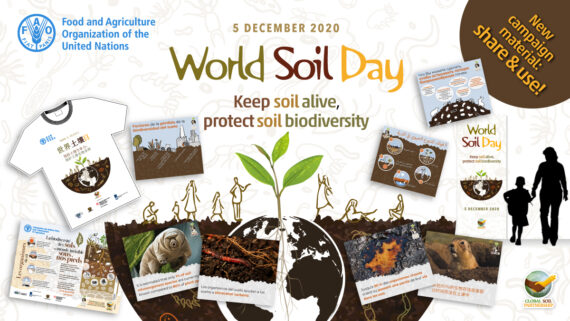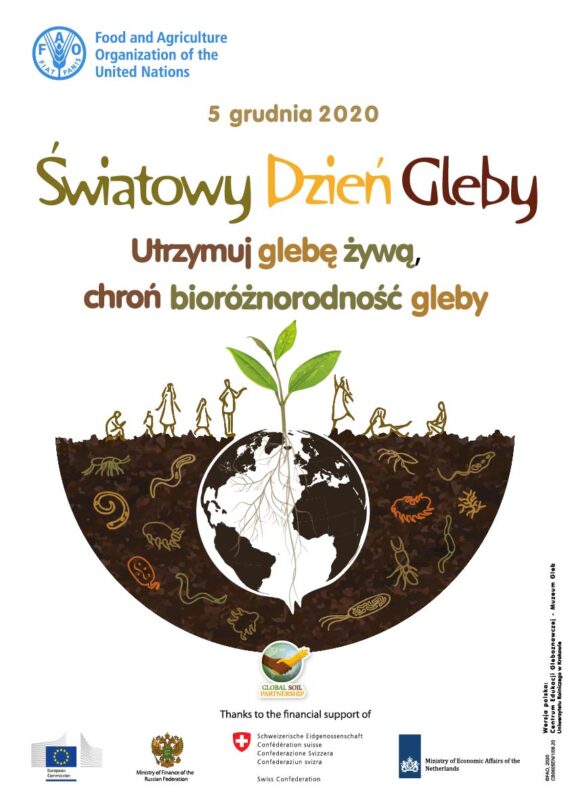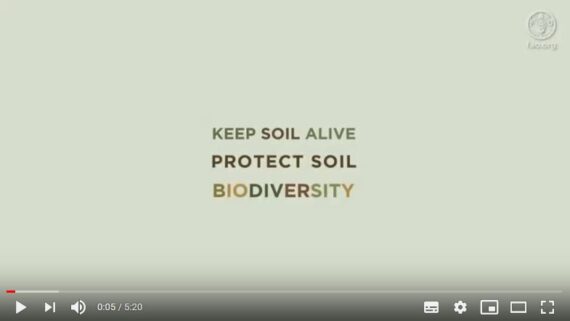
World Soil Day, 5 December – Keep the soil alive, protect soil biodiversity
Soil plays a key role in food production and this is the point of view from which we most often judge its value. But soil serves us in many other ways. It is part of the natural water cycle. The water contained in the soil nourishes plants, lowers irrigation costs and reduces the occurrence of drought. Healthy soil gives life to healthy soil organisms - microorganisms, e.g. bacteria, fungi, nematodes and larger organisms such as insects, arachnids, earthworms, and moles, as well as plants which improve soil cohesion and structure, making it more permeable to water and gases. At the same time, soil influences the climate due to its ability to bind carbon dioxide and its share in the greenhouse gas cycle. Apart from oceans, soil is the largest store of carbon dioxide on Earth.


This year, the goal of the World Soil Day on the 5th of December is to highlight the importance of soil biodiversity.
We have to improve our understanding of the role which soil biodiversity plays in supporting life on Earth, says Dr. Marta Pogrzeba, Prof. of IETU, a member of the Mission Board for Soil Health and Food of the HORIZON EUROPE 2021-2027. Even though we constantly deepen our knowledge of soil, we still know only 1% of bacteria and fungi. To better understand the importance of soil, it is necessary to model the processes that take place in it and forecast changes. Support for further research and activities aimed, in particular, at the protection of soil and its biodiversity is the subject of the HORIZON EUROPE mission "Caring for soil is caring for life".
Soil is a subsystem in any terrestrial ecosystem, such as meadow, forest or farmland. However, it is much more difficult to notice how important the role it plays in the city is, as the ecosystem services provided by soil in cities are not only squares, parks, playgrounds or street greenery. Soil helps maintain biodiversity in the city. If it is not covered with buildings, concrete or asphalt, it slows down the surface runoff, retains water and additionally filters it. It allows lowering the temperature in the city during hot weather, increasing air humidity. It also contributes to the prevention of floods and droughts.
Soils in cities have many functionalities, we have soils in production or post-industrial areas, laden with contaminants that must be neutralised. There are also soils in cities that can be used for new functions connected with the development of urban crops. Better understanding of the role of urban soils in the context of improving the quality of urban space will allow for the implementation of new solutions in the field of @ błąd w wersji polskiej – z zakresu planning and management of urban space, which are part of the development processes of smart and climate neutral cities - emphasises Justyna Gorgoń, PhD, Eng. of Architecture, who took part in the development of "Europeans' Strategic Research Agenda for Integrated Spatial Planning, Land Use and Soil Management".
On Friday, the 4th of December 2020 from 10.00 a.m. to 4.15 p.m. the inauguration of the EU Soil Observatory will take place.
More information can be found at: https://ec.europa.eu/jrc/en/event/workshop/launch-event-eu-soil-observatory









